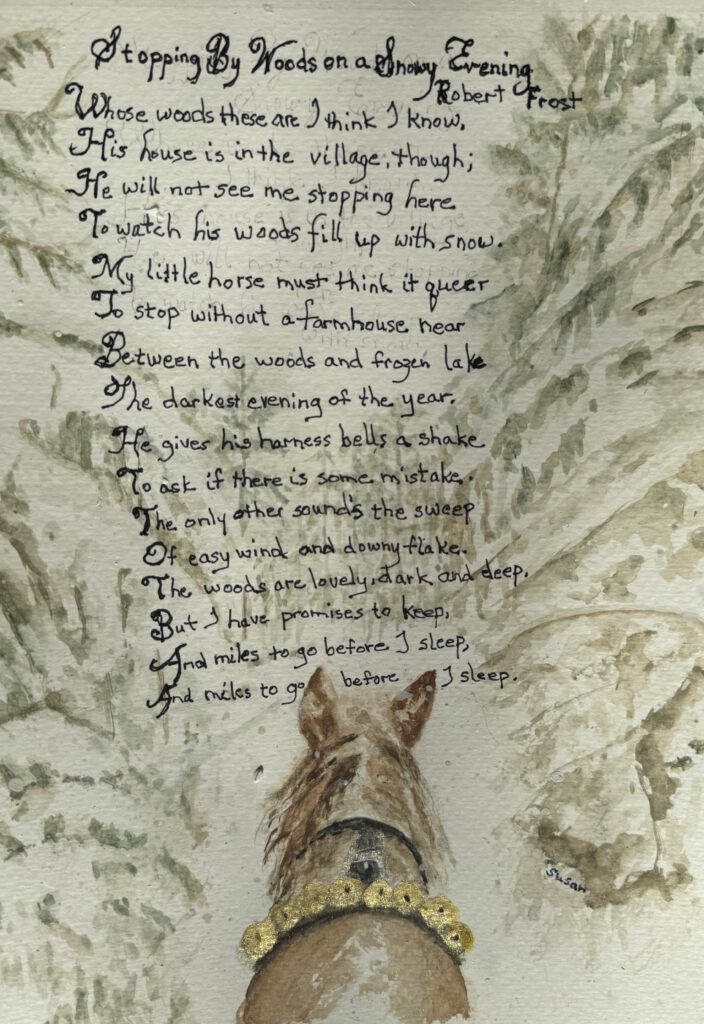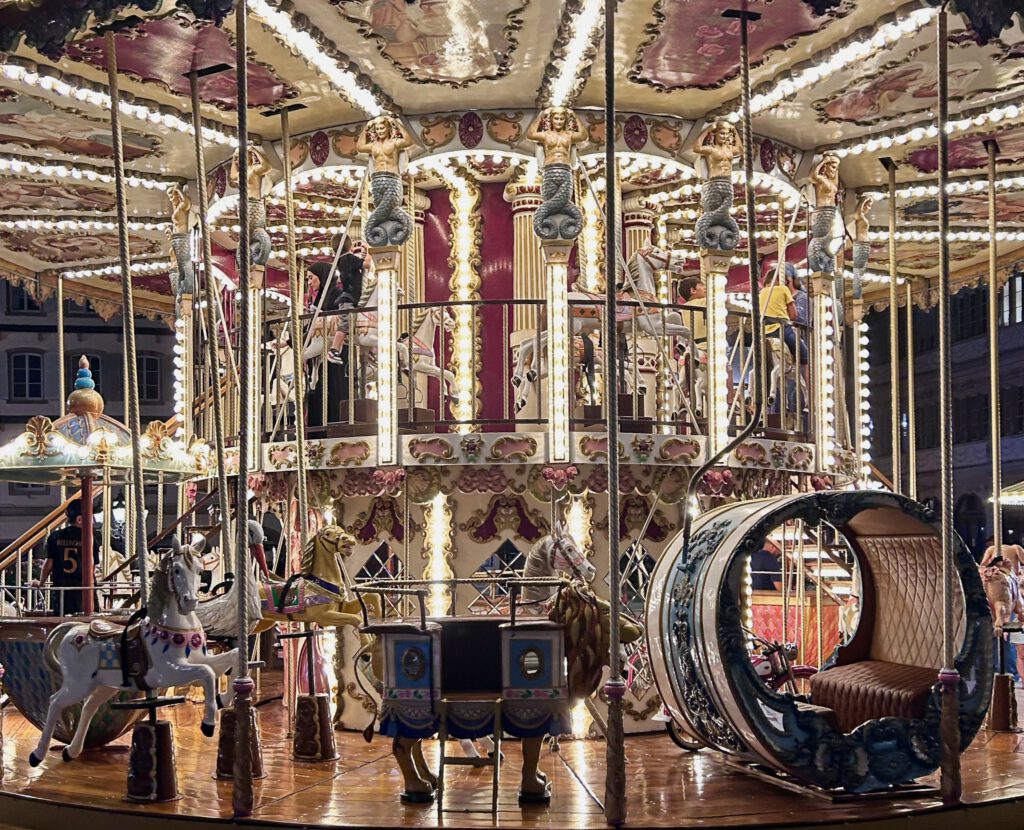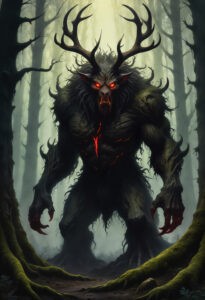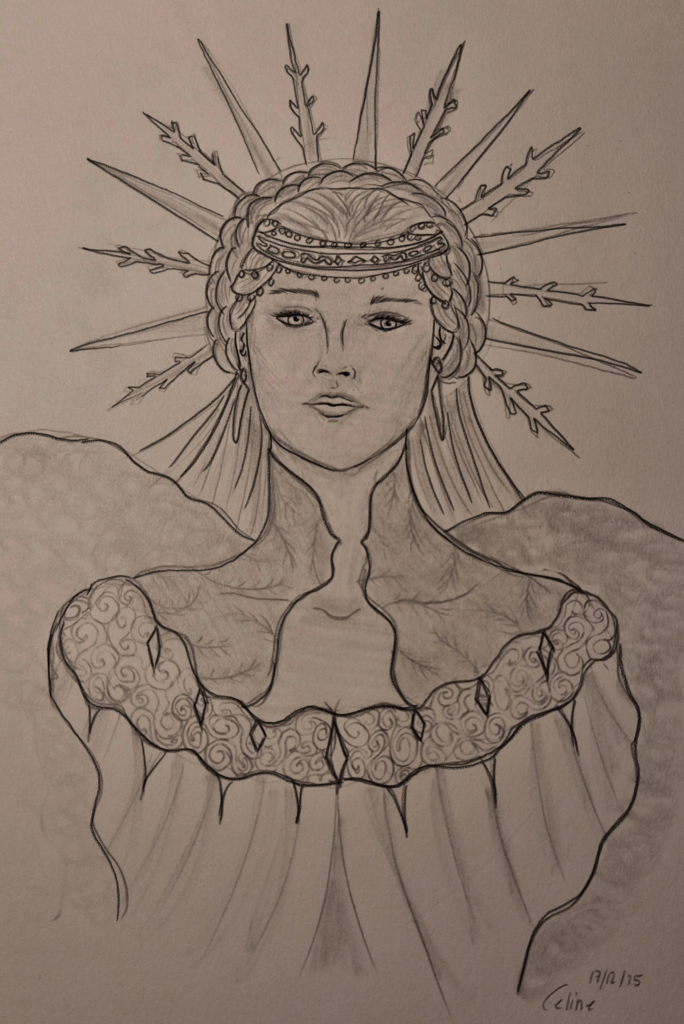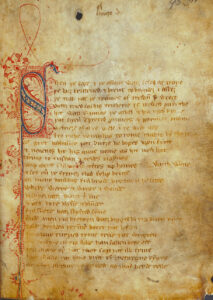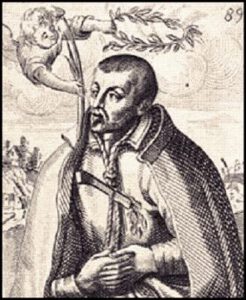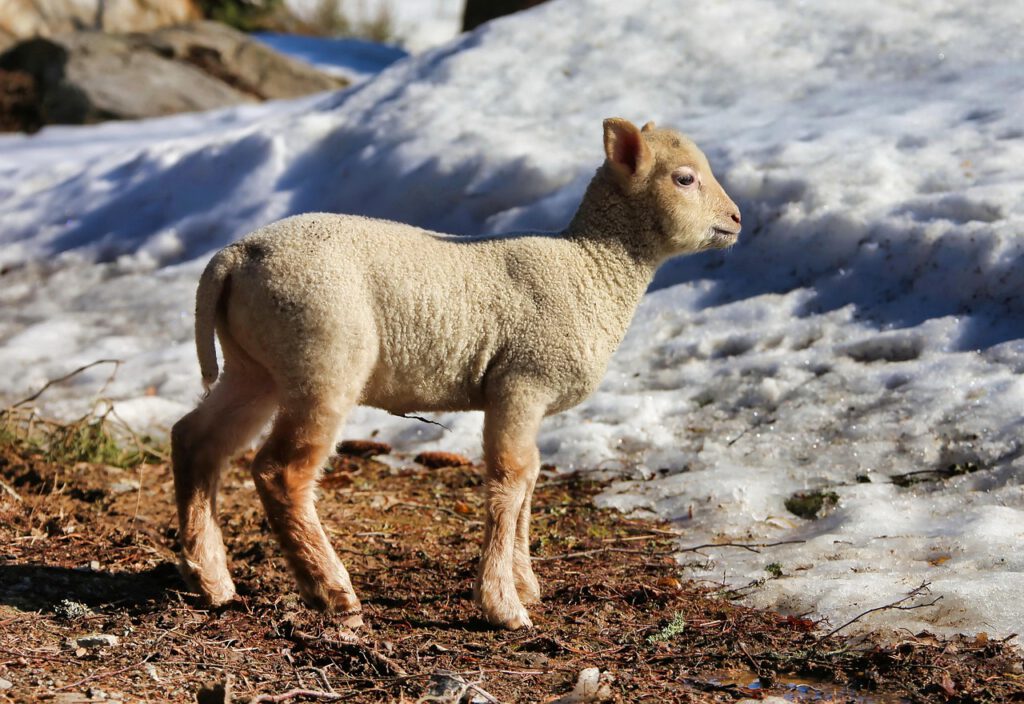What is the Dream in A Midsummer Night's Dream?
Robert Crosman
Published in Connotations Vol. 7.1 (1997/98)
At the end of the play, after the newlyweds have retired to bed, leaving Theseus's Athenian palace to the fairies of whose existence they are still unaware, Puck addresses the audience with one of those deferential closing speeches that not only begs for applause but also subtly complicates our response to the play we have just seen by giving something that is almost (but not quite) that rarest of Shakespearean moments, authorial comment:
If we shadows have offended,
Think but this, and all is mended:
That you have but slumbered here,
While these visions did appear;
And this weak and idle theme,
No more yielding but a dream,
Gentles, do not reprehend.
If you pardon, we will mend.
And as I am an honest puck,
If we have unearnèd luck
Now to 'scape the serpent's tongue,
We will make amends ere long,
Else the puck a liar call.
So, good night unto you all.
Give me your hands, if we be friends,
And Robin shall restore amends.
On its face, this speech seems to explain the play's title: what we have just witnessed was merely a dream, and thus there is no offense in it, no offense in the world!
The "offense" would presumably be the play's benign view of fairies in the face of an orthodox Protestant Christian belief that fairies, if they [→page 2] existed at all, were evil spirits.1) But the fear of offending seems itself light−hearted: if Shakespeare were seriously worried about frightening his audience with demonology, then would he have put his apology into the mouth of the mischievous Puck? Far from abandoning his trickster character, Puck in his epilog persists in equivocating: "As I am an honest puck … Else the puck a liar call." These lines remind us that Puck is a trickster, and again put into question his ambiguous assertion that the play has been "but a dream."
Delivered by Puck, this innocent, deadpan advice on how to take the play seems pretty clearly to contain an ironic false bottom: after all, it was Theseus who confidently ascribed the night's adventure in the woods to fantasy, and Theseus for all his practical wisdom was wrong. My view is that if you take Puck's advice at face value and regard the events in the woods as moonshine, then you will be just as sensible and hard−headed as Theseus, but just as wrong. This I infer not only from the verbal irony of Puck's last speech, and from the dramatic irony of Theseus's reasonable but mistaken reaction to "the story of the night," but above all from the staging of a play within the play, where Shakespeare models for us not only an inept bunch of actors but a foolish audience who fail to understand what has been put in front of them, and who thus provide a model of how we as an audience should not interpret the play.
I
That A Midsummer Night's Dream is only a harmless fiction, a collective illusion, may well be the view of many in the audience, too, who like Theseus will have no truck with "These antique fables nor these fairy toys" (5.1.3) that the lovers have recounted from their night in the woods. And yet, to accept Puck's retractions at face value is to miss the sly ironic note of "If" and of "Think but this," which does not quite have the force of "remember this," but has more that of "assume," or even of "imagine": If you have trouble accepting the presence of fairies in the lives of flesh−and−blood people, then think of the adventures you have just witnessed as a dream—"even though they weren't" is silently signalled.2)
[→page 3] One critic who purports to take dream seriously in Shakespeare is Marjorie Garber. "Shakespearean dreams are always `true,' when properly interpreted," she writes, "since they reflect a state of affairs which is as much internal and psychological as it is external."13) This is an excellent way of recuperating the play for a modern audience troubled by fairies on stage, but Puck's hypothetical attribution of dream status to the events of the play, even backed up by Shakespeare's title, does no more than create an ambiguity in our minds: what do Shakespeare and Puck mean by "dream"? What is the dream in this play, and who dreams it?
Theseus thinks the lovers' adventure in the woods is imaginary, and hence a kind of collective dream, but he is flat wrong when he dismisses as fantasy "the story of the night" (5.1.23). As Hippolyta points out, four people all report the same experiences, and dreams are not communal. Moreover, we have just witnessed what happened, and know that it was no dream: in the world of the play it really happened. But it is fantastic, and many critics beside Garber agree with Theseus that the four are guilty of hyperactive imaginations: "Did it happen, or didn't it happen?" asks C. L. Barber. "The doubt is justified by what Shakespeare has shown us. We are not asked to think that fairies exist. But imagination, by presenting these figments, has reached to something, a creative tendency and process."3)
Of course in one sense it didn't happen: after all, this is a fiction, like Romeo and Juliet or The Merry Wives of Windsor; yet we would hardly expect a critic to ask so naive a question of those plays as "Did it happen?" Surely Barber means something more: do the fairies exist in the world of the play? But since there can be no doubt that the fairies are real (in the play), and that the only delusion is Theseus's dismissal of the mysterious events that the fairies have caused, we can only wonder that Barber decides that they are "figments." The reason is, of course, that we don't believe in fairies, and would like to think that Shakespeare dismissed them, as we do, as fantasies and delusions. Sometimes he does just that; and yet in A Midsummer Night's Dream he depicts a world where people mistakenly regard their strange experiences as "dreams," and are thus unaware of the real, unseen forces that shape their lives.
[→page 4] Still, Shakespeare's title does mention a dream, and for most critics the events in the woods seem the most likely referents for that word "dream." James L. Calderwood thinks that what happens in the forest is Theseus's dream, or rather a joint dream with his fiancée: "what happens to Titania is as much Hippolyta's nightmare−dream as it is Theseus'."4) There is no sign in the text that we are to take Oberon and Titania as dream−projections of Theseus and Hippolyta, but Calderwood thinks that the effect of doubling the roles (one actor plays Theseus and Oberon; one plays Hippolyta and Titania) would make that point to the audience. In a theater where actors routinely played multiple parts, however, it seems to me unlikely that an audience would spontaneously surmise that one character was merely another's dream−projection, unless given some clearer signals. Not only are the fairies presented on stage as real, but later, when Theseus and Hippolyta hear an account of it, they experience no shock of recognition, even though it is according to Calderwood they, not the four young lovers, who have had the dream.
By invoking dream, Puck and Shakespeare jointly ask us to consider the hypothesis that the fairies are not real but imagined. But clearly the play asks us to do the opposite, too: to consider that they may be real, and something else the "dream" to which the title refers. It thereby questions the "reality" that Theseus has so firm but mistaken a grip on. As David Young puts it:
… if we are willing to say that the play is a dream, and, as a result, inconsequential, then we are no better than the characters we have just been laughing at. If we have learned anything from the play, we have learned to be wary of dismissing unusual experiences as meaningless dreams and of regarding dreams as yielding no significant knowledge. Puck's invitation must be heard or read in the light of these perceptions. It then becomes one more blow at the customary distinction between dream experience and waking experience.5)
I am not saying that fairies are real, nor even that Shakespeare thought so. I am saying, rather, that he, or more properly the play, is exploring the possibility that fairies and other unseen, spiritual beings may be real, and may intervene in our lives. And this undecidability, Shakespeare's unwillingness to choose between two mutually exclusive views, is conveyed most powerfully by means of metatheater. The play−within−a−play [→page 5] here, as in Hamlet, enables the playwright to model the ambiguities not merely of the rest of his play, but also of the world outside the theater's walls—the real world, as we complacently call it.
I suspect that fairies are not an agreeable topic for most of us. Not surprisingly in a secular age like ours, many critics have a blind spot when it comes to interpreting these and other supernatural dimensions of Shakespeare's plays. Marjorie Garber, for example, refers to manifestations such as Macbeth's witches, Banquo's ghost and Hamlet's as dreams, when they are no such thing. But to take them at face value would be to betray our scientific world−view, which denies the existence of witches and ghosts. A common way of explaining the presence of fairies in A Midsummer Night's Dream is to attribute them to the power of the human imagination: thus the play is about human creativity in general, and Shakespeare's in particular. Such a view can be arguably sanctioned by Theseus's lecture on the power of poets, madmen, and lovers to people the world with imaginary beings (5.1.1−27). His is indeed a naturalistic account of how such things as fairies come to be imagined, but it is Theseus's explanation, not Shakespeare's, and is belied in the play by the objective existence of facts that Theseus attributes to fantasy. Of course, the supernatural experience of the sojourners in the woods—and most of all Bottom—has been imagined by Shakespeare: his fairies are largely original creations. But that supernatural experience in general is purely imaginary is a hypothesis that some of his characters assert, but his plays themselves elsewhere do not support. Ghosts and witches, the god Hymen in As You Like It, and the angels that bring Richard III bad dreams on the eve of battle are really there in the world of the play, and are not dismissable as projections of the characters' imaginations.
II
Tempting as it is to read Puck's epilog as an authorial mandate to think of the play we have just witnessed as the "dream" referred to in its title, the ironic overtones of Puck's final speech ask us to look for a more discerning answer to the question: "What is the dream in A Midsummer [→page 6] Night's Dream?" A play is a conscious, waking fantasy shared with others in the audience, and manipulated by the actors, or by their script−writer. A dream, on the other hand, could be described as an involuntary fantasy that the dreamer does not recognize as such, and hence does not control: on the contrary, it controls him. So let us begin by assuming that the title means more than that the play itself is a dream, and ask what other dreams there are in A Midsummer Night's Dream? At one point or another many of the principal characters fall asleep. Of those who sleep—the four lovers, plus Titania and Bottom—most refer to the odder aspects of their nocturnal adventures, including love−affairs with unsuitable or fantastic partners, as "dreams" they have had. But we in the audience have witnessed these adventures, and know that they are no dream: Hermia has been scorned by her lovers and Helena loved by her scorners, Bottom has been loved by a fairy queen and Titania has loved an ass. So what (again) is the "dream," and who is having it?
There is one actual dream in A Midsummer Night's Dream, for at one point in the play Hermia and Lysander lie down to rest and fall asleep. Shortly thereafter Hermia awakes from a bad dream:
HERMIA (waking)
Help me, Lysander, help me! Do thy best
To pluck this crawling serpent from my breast!
Ay me, for pity! What a dream was here?
Lysander, look how I do quake with fear.
Methought a serpent ate my heart away,
And you sat smiling at his cruel prey.
Lysander—what, removed? Lysander, lord—
What, out of hearing, gone? (2.2.151−58)
Dramatically the function of this dream is to waken Hermia, so that she can go after the lover who has just abandoned her, while psychologically it tells us something about Hermia's fears: Lysander does not take seriously her being hurt by that prototypically deceptive animal, the snake.
Norman Holland makes a good deal more of this dream, and sees it finally as emblematic of the play as a whole—"Literature is a dream dreamed for us" he asserts—but his interpretation turns on taking Puck's epilog seriously.6) By ignoring Puck's playful, ironic way of suggesting [→page 7] that we may take the play for a dream if we choose, Holland reduces the play as a whole to the rather questionable status of Hermia's dream, which is an illusion—in Theseus's common−sense psychology, she has mistaken a bush for a bear (5.1.22). The "truth" of the play, for Holland, like that of Hermia's dream, is entirely symbolic: no serpent ate her heart, just as no fairies fixed her love−life. Yet manifestly they did fix her love−life, and so the analogy between Hermia's dream and the play in which she dreamt it is not a good one. We must look further.
Current trends in Shakespeare criticism—feminism, cultural materialism, new historicism—are also eager to see Shakespeare's play as dreamlike in its lack of truthfulness, but far more sinister than Holland's benign "self−knowledge" model. Louis Adrian Montrose's seminal reading, "`Shaping Fantasies': Figurations of Gender and Power in Elizabethan Culture," argues that "the festive conclusion of A Midsummer Night's Dream depends upon the success of a process by which the female pride and power manifested in misanthropic warriors, possessive mothers, unruly wives, and wilful daughters are brought under the control of lords and husbands."7) For him, the play is not festive at all, but rather a sort of collective dream in which the society of Shakespeare's day tried to reconcile the fact of hierarchy with the desire for justice. To Montrose this play is a "dream," and hence it achieves only the illusion of justice, which is the only irony Montrose hears in Puck's epilog. In effect Montrose is trying to shake us awake from the bad dream of patriarchy.8)
A dream is an illusion—this is what critic after critic is telling us about the dream in Shakespeare's title. But the adventures in the woods were all real in the play; there are a great many illusions on show in the play, but most of these occur not in fairyland, as we might suppose, but back in Athens, where Demetrius "dreams" that he loves Hermia, Egeus "dreams" that his daughter must marry his favorite suitor, Theseus dreams that the laws of Athens compel him to enforce Egeus's fancy, and Helena dreams that she will benefit by informing Demetrius that Hermia and Lysander have eloped. Their own waking life, then, is the "dream" from which these characters need to awake.
There is one more famous "dream" that is no dream in the play: "Bottom's Dream." Oberon, in revenge for being denied the Indian Boy [→page 8] that he wants for a page, orders Puck to put a love−spell on Titania so that she will fall in love with the ignoble Bottom. And to make her shame more complete, he orders Bottom to be given the head of an ass. In that guise, Bottom frightens his friends away, but is taken to Titania's bower, where she embraces him while he falls asleep (4.1.39). When he awakes the spell has been lifted, he has his own head again, and he cannot believe his memories of what just happened:
… I have
had a most rare vision. I have had a dream past the wit
of man to say what dream it was. Man is but an ass if he
go about to expound this dream. Methought I was—
there is no man can tell what. Methought I was, and
methought I had—but man is but a patched fool if he
will offer to say what methought I had. The eye of man
hath not heard, the ear of man hath not seen, man's
hand is not able to taste, his tongue to conceive, nor his
heart to report, what my dream was. I will get Peter
Quince to write a ballad of this dream. It shall be called
`Bottom's Dream,' because it hath no bottom; and I will
sing it in the latter end of a play, before the Duke. Per−
adventure, to make it the more gracious, I shall sing it
at her [Thisbe's?] death. (4.1.201−15)
Bottom's "dream" is different from that of the four lovers because he has seen Titania and her fairy train, while they have merely felt the effects of Puck's tricks and potions. Bottom alone has been given a vision of divinity, but that very transcendence makes it impossible for even him to believe in it. Despite his plan here to make his experience into a ballad, he never reports it to Peter Quince or to anyone else—apparently it is far too strange to be believed. Bottom's words, as is well known, parody St. Paul's famous reference to transcendant reality ("Eye hath not seen, nor ear heard, neither have entered into the heart of man, the things which God hath prepared for them that love him." [1 Cor. 2:9]) But the parody cuts two ways: while Bottom's version may be said to mock Scripture, Scripture may also be dignifying Bottom's "dream," as Christians are reminded that there is such a thing as transcendent reality, invisible to the eye of the body. No serious Christian can dismiss the supernatural as an illusion, even if the status of fairies within that realm is problematic.
[→page 9] If by dream we understand illusion, then the "dreams" of A Midsummer Night's Dream are strangely inverted: when the characters were wide awake at home in Athens, they were "dreaming" in the sense of being deluded, and when they enter the dark woods their adventures are real, not illusory, their only delusion being to disbelieve the reality of what they take to have been dreams. As Harold Goddard puts it: "this world of sense in which we live is but the surface of a vaster unseen world by which the actions of men are affected or overruled."9)
The magical way in which their lives are fantastically disordered and then re−ordered by magical beings whom they cannot see and do not infer—this whole adventure resembles a dream, and exemplifies a surrender to forces greater than themselves to solve problems that seem otherwise insoluble. Yet in this play, what happens in the woods is no dream. The "dream" is not what happens to them in the woods, which is quite real; rather, the dream is the illusion that they were certain about their lives in the first place. The "dream" is this waking life, which they foolishly believe they have understood, but which is actually in the control of forces far greater than they: the fairies, the Moon, the Fates, and ultimately the playwright himself.
III
In A Midsummer Night's Dream, the world is a dreamlike play in which the characters behave in irrational ways that they do not comprehend because their wires are being pulled by forces that they are totally unaware of. And the occasion of the play−within−the−play, the lamentable comedy of Pyramus and Thisbe, offers them the opportunity to see what fools they are, but they entirely miss the point. Their failure to comprehend should make us in the audience realize that we are in the same position as they. We are watching a play just as they are, and yet we most likely do not notice this commonality, and so do not grasp that we, too, may be characters in a play that we do not recognize as such, and so cannot comprehend, much less control.
One reason why no one in A Midsummer Night's Dream realizes that the world is a stage is that there are no conscious roleplayers in this [→page 10] play: everyone is painfully sincere—or more properly, trapped inside an unprofitable role. Unlike the characters in plays such as The Taming of The Shrew or Hamlet, where the theatrical nature of waking life is suggested by their obsessive roleplaying, all the human characters in A Midsummer Night's Dream behave precisely as themselves, and all are trapped in their own inflexible identities and impulses: "the conventions are entrapping," as J. Dennis Huston puts it, "because the nature of the lover's role is already determined for him."10)
Though Hermia and Helena are indistinguishable in everything but height, the interchangeable lovers Demetrius and Lysander are certain that life with one of them will be bliss, while with the other it will be hell−on−earth. Yet half−way through the play the two women switch their positions in this formula. Helena accuses the men of deception, but she is mistaken: after being given a love−potion they are as genuinely in love with her as they were a few minutes earlier with Hermia. Meanwhile Egeus has set his mind on his daughter Hermia marrying Tweedledum, but never Tweedledee, while Duke Theseus regretfully observes that though he sees the absurdity of Egeus's position, he can only enforce the ineluctable laws of Athens (1.1.119). Later, he changes his mind, and no heavens crumble.
Nor when they get to fairy land do they fare much better. Titania and Oberon are themselves at all times, except when pansy−juice has caused Titania to fall in love with Bottom; when she is given the antidote, she saves her self−esteem by imagining that she has merely been dreaming. Puck alone is called upon to roleplay a little—he impersonates Demetrius' and Lysander's voices at one point—but Puck like his master Oberon is more apt to accomplish his deceptions simply by going invisible and applying a potion rather than by taking the trouble to disguise himself.
So it is really only the "mechanicals" who act parts, and they are of course marvelously inept at roleplaying. That these simpletons take it into their minds to write and perform "the most lamentable comedy" (1.2.11−12) of Pyramus and Thisbe is a wonderful joke that enlivens Shakespeare's play with an example of how not to put on a play. For example: Shakespeare's play, much of which takes place by moonlight, must evoke the presence of that moon despite the fact that it might also be performed in the open air, in broad daylight.11) This Shakespeare [→page 11] accomplishes by poetic appeals to the imagination, a recurrent evocation of the moon by mentioning it, by describing the world of the forest as it would appear by moonlight, and most of all by a kind of "versified moonlight"—a magical, incantatory verse that suggests a land of darkness, fairies, and silvery glow.
The mechanicals, on the other hand, after considering and rejecting the option of merely opening a casement window to the moon that will be shining on the night of their performance, decide to appoint one of their number to impersonate the moon, which he does by carrying a lantern, and by announcing this identity to the audience. Needless to say, the audience is not persuaded, and makes merry with poor Robin Starveling, and with Bottom's woeful attempt to evoke darkness in immortal lines such as:
O grim−looked night, O night with hue so black,
O night which ever art when day is not;
O night, O night, alack, alack, alack … (5.1.168−70)
Thus the mechanicals are unable to create the illusion of night, even though they have the advantage of playing their scene late in the evening, by artificial illumination.
Yet these players are hilariously unaware that they are not performing a highly illusionistic drama. Bottom, the deep thinker of the group, decides that the audience must be informed that Pyramus does not really die by his own hand, or it will affright the ladies:
… Write
me a prologue, and let the prologue seem to say we will
do no harm with our swords, and that Pyramus is not
killed indeed; and for the more better assurance, tell
them that I, Pyramus, am not Pyramus but Bottom the
weaver. This will put them out of fear. (3.1.15−20)
Other measures must be taken, too, to prevent their drama from appearing too realistic: the lion must be recognizably a man in disguise, and he must speak words of reassurance: "`… I am a man, as other men are'—and there, indeed, let him name his name, and tell them plainly he is Snug the joiner" (3.1.39−42).
[→page 12] Paradoxically, though, the more the mechanicals laboriously spell out the brute facts of playing and playgoing—it is all illusion; no one is who he pretends to be—the more engaging and credible these characters become, and as we watch these very sincere people fail to become the characters they hope to impersonate it still does not occur to us to say to ourselves: "This is not Bottom speaking, but rather it is yon celebrated, intelligent actor."
Such facts are too obvious to state, for one thing; but secondly it would spoil our illusion to recognize that Bottom and his excellent foolishness are actually the brilliant inventions of a clever actor and playwright. And so when it is agreed upon that Robin Starveling shall represent the moon, abetted by a bush and a lantern, though we laugh at the foolish device we do not doubt that this is actually Robin Starveling who will perform it, or that the troupe believe in its effectiveness. Nor (least of all) do we pause to think that we have already been hoodwinked elsewhere into imagining a moon present in this play when there was only moonshine.
So, when the last scene in the play arrives, and the mechanicals perform their lamentable comedy, we watch and listen approvingly as the aristocratic, sophisticated audience makes merry at the poor actors' expense. This is a wedding feast, and these tipsy newlyweds are determined to laugh, just as we are. Since the story itself is anything but merry, the audience must be merry at the inept staging and performance, even though to do so they must be unfair, if not downright unkind:
STARVELING (as Moonshine)
This lantern doth the hornèd moon present—
DEMETRIUS He should have worn the horns on his head.
THESEUS He is no crescent, and his horns are invisible
within the circumference.
STARVELING (as Moonshine)
This lantern doth the hornèd moon present,
Myself the man i'th' moon do seem to be—
THESEUS This is the greatest error of all the rest: the man
should be put into the lantern. How is it else the man
i'th' moon?
DEMETRIUS He dares not come there for the candle; for
you see it is already in snuff.
[→page 13] HIPPOLYTA I am aweary of this moon. Would he would
change.
THESEUS It appears by his small light of discretion that he
is in the wane; but yet in courtesy, in all reason,
we must stay the time.
LYSANDER Proceed, Moon.
STARVELING All that I have to say is to tell you that the
lantern is the moon, I the man i'th' moon, this thorn
bush my thorn bush, and this dog my dog.
DEMETRIUS Why, all these should be in the lantern, for all
these are in the moon. But silence; here comes Thisbe. (5.1.235−56)
Many of these criticisms are not apt, and arise from a determined literal−mindedness—a refusal or inability to "dream"—on the part of an audience who have given up trying (if they ever have tried) to enter into the play's illusion. Poor Robin's moon is "horned" because it is a crescent, and because it is represented by a "lanthorn" (the pun is lost in modernized spelling); such facts have nothing to do with Demetrius's stock response inferring cuckoldry. And Theseus's objection to Starveling's carrying his lantern is mere quibbling: the lantern fairly represents the moon's light, and Theseus cannot seriously suppose that constructing a lantern large enough for Starveling to be inside would be any improvement. The other quibbles are equally specious, and reflect an audience determined to amuse themselves by finding fault with a performance that is otherwise devoid of amusement for them. And yet most of their wit is rather lame—look at Demetrius, who after his cuckoldry cliché tries next to get a laugh out of a joke that Theseus has already made.
As these nobles see it, they are being gracious merely to allow the mechanicals to perform at their wedding−banquet. Theseus, the largest−minded and highest−ranking member of the party, has already explained that since he knows the play will be terrible, it is a mark of nobility on his and everyone else's part to endure it patiently:
HIPPOLYTA
I love not to see wretchedness o'ercharged,
And duty in his service perishing.
THESEUS
Why, gentle sweet, you shall see no such thing.
[→page 14] HIPPOLYTA
He says they can do nothing in this kind.
THESEUS
The kinder we, to give them thanks for nothing.
Our sport shall be to take what they mistake,
And what poor duty cannot do,
Noble respect takes it in might, not merit. (5.1.85−92)
The whole scene, in short, is one in which an audience—including us, perhaps, the audience at Shakespeare's play—is depicted as discerning and aristocratic, while actors are portrayed as bumbling plebeians. Moreover, rude heckling and interruption from that aristocratic audience is described by that audience's most authoritative voice as patience, kindness, and "noble respect"—and probably is, since this performance cannot be enjoyed by a discerning audience on any other terms than superior amusement, and since the mechanicals would be far more crushed by not being permitted to perform at all, and thus missing out on the payment they hope to earn.
But isn't the joke ultimately on Theseus, Hippolyta, and the rest of this bunch? For though they laugh at the mechanicals' simple antics, there is a race of beings superior to them who actually control their destinies as surely as Theseus rules in Athens, and who see and laugh at their follies—"Lord, what fools these mortals be!" (3.2.115). On the whole these superior beings are patient and kind, as is evidenced by their straightening out of the tangles that the lovers and patriarchs have made of their lives, yet Theseus's pigheaded assurance that he understands how the world works is utterly belied by facts which are in our possession but of which he is blissfully ignorant:
HIPPOLYTA
'Tis strange, my Theseus, that these lovers speak of.
THESEUS
More strange than true. I never may believe
These antique fables nor these fairy toys.
Lovers and madmen have such seething brains,
Such shaping fantasies, that apprehend
More than cool reason ever comprehends.
The lunatic, the lover, and the poet
Are of imagination all compact.
[→page 15] One sees more devils than vast hell can hold:
That is the madman. The lover, all as frantic,
Sees Helen's beauty in a brow of Egypt.
The poet's eye, in a fine frenzy rolling,
Doth glance from heaven to earth, from earth to heaven,
And as imagination bodies forth
The forms of things unknown, the poet's pen
Turns them to shapes, and gives to airy nothing
A local habitation and a name.
Such tricks hath strong imagination
That if it would but apprehend some joy
It comprehends some bringer of that joy;
Or in the night, imagining some fear,
How easy is a bush supposed a bear!
HIPPOLYTA
But all the story of the night told over,
And all their minds transfigured so together,
More witnesseth than fancy's images.
And grows to something of great constancy;
But howsoever, strange and admirable. (5.1.1−27)
Only Hippolyta voices any belief that the lovers' strange tale of adventure in the forest may be other than a simple delusion, but her doubts are brushed aside by the hardheaded Theseus, who knows how to keep imagination in its place.12)
And yet it is she, not he, who intuits the truth as we have witnessed it. The play the mechanicals have just performed may be moonshine and foolishness, yet the audience that derides it is equally foolish in their smug assurance that they know what truth is and what is fantasy. Around them, and all unseen, a race of superhuman beings straightens out their love lives, blesses their marriage beds, gives them healthy children, protects them from malign influences, and in return asks only the simple pleasure of being allowed to watch and laugh at their follies. And all in turn are watched over by the influential moon and stars, and by their Creator—and of course by us, who sit in Shakespeare's audience sublimely unaware (unless we are very perceptive) that we in turn may be watched by higher powers that find us diverting. Lord, what fools we mortals be!
University of Alaska
Anchorage
































 Ring out, wild bells, to the wild sky,
Ring out, wild bells, to the wild sky,







